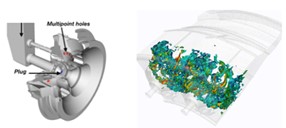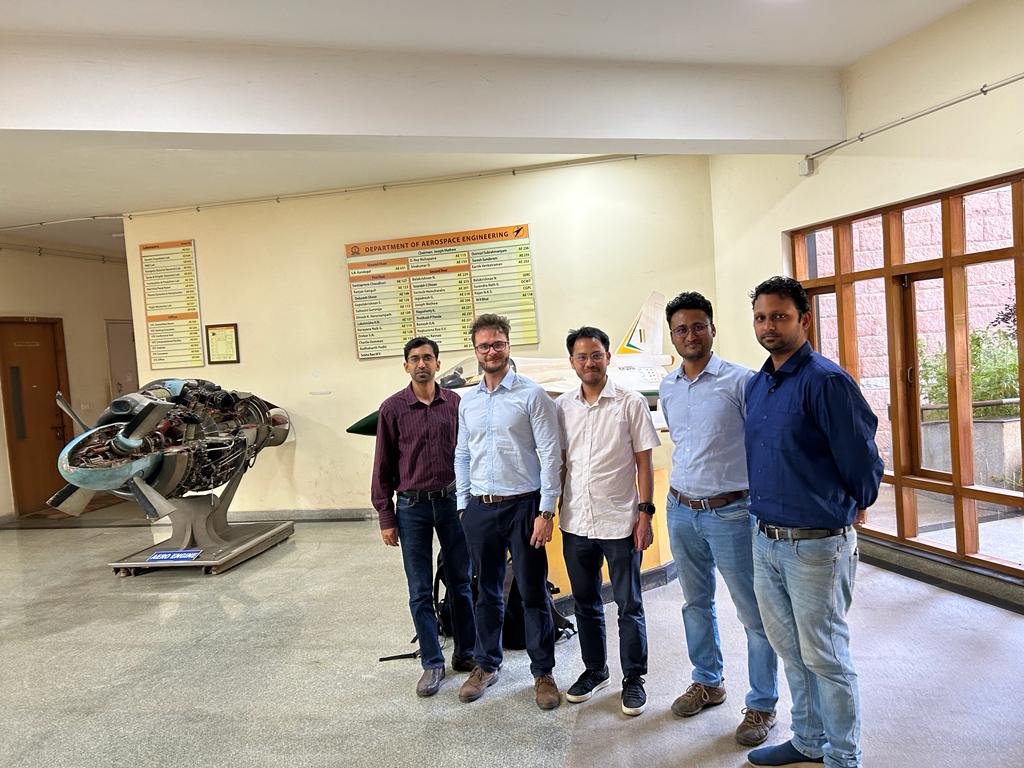TU Delft & IISc team up to study flashback from hydrogen-powered engines
A collaboration between researchers from the Delft University of Technology (TU Delft) and the Indian Institute of Science Bangalore (IISc) has recently been launched to develop an algorithm based on Artificial Intelligence that can detect in real time the occurrence of flame flash-back and other engine-flame-related instabilities specifically for the new-generation of ultra-low emissions jet engines fuelled by hydrogen, and act timely during flight operations to prevent such instabilities. Assistant Professors Dr Anh Khoa Doan and Dr Ivan Langella from the Faculty of Aerospace Engineering at TU Delft visited the Department of Computational and Data Sciences at IISc in March 2023 to further develop this joint research with Dr Aditya Konduri.
The research targets the development of an ultra-low emission, wide-operation jet engine based on hydrogen energy, that is self-aware and able to self-prevent the onset of “extreme” events such as flashback and instabilities, and thus engine failure. The risk of such failures is much more prevalent in hydrogen-powered jet engines compared to the current kerosene-based ones and this risk constitutes a technological hurdle preventing the more widespread adoption of hydrogen as a clean fuel for jet engines. Developing the AI-based sensing and control tools that prevent such instabilities would pave the way for carbon-free hydrogen-powered aircrafts.
This joint effort takes advantage of the strengths of both research groups in the development of an innovative and advanced algorithms based on artificial intelligence. The IISc Bangalore will provide high-fidelity direct numerical simulations of a simplified combustion chamber to be used for the initial training of the AI framework. TU Delft will perform additional high-fidelity large eddy simulations where water droplets are further injected as active mechanism to prevent the insurgence of the instability or flashback. This latter configuration will constitute the test for the trained AI framework at real engine conditions where the combustion dynamics are known to be unstable. The final goal is that the AI will spot the uprise of the instability before it appears and activate the injection of the right amount of water, at the right location and conditions, to stabilize the flame immediately, but at the same time preserving the engine efficiency.
The visit included a series of project-related meetings to create a shared collection of datasets generated at TU Delft and IISc necessary for the development and training of the AI-framework and to establish its general concept, leveraging advances in deep learning techniques developed by Dr. Doan, Dr. Langela and Dr. Konduri. In addition, given the multidisciplinary nature of this project, both the Aerospace and Computation and Data Science Departments were visited. Dr. Doan and Dr. Langella both gave knowledge-sharing seminars and had the opportunity to visit the experimental facilities of IISc dedicated to aerodynamic and low emission combustor testing.




